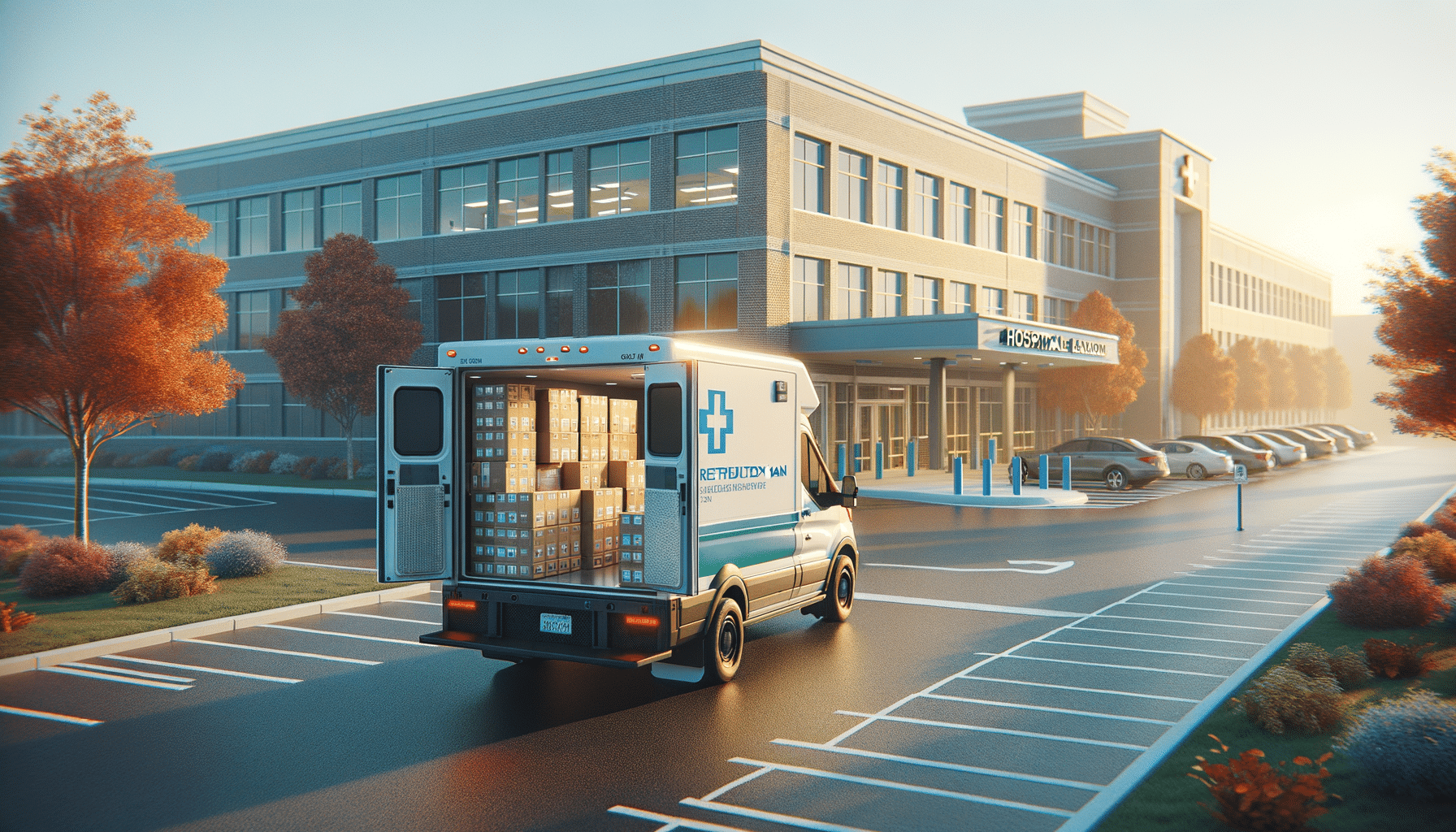
Discover How Medical Delivery Jobs Support Healthcare Operations
Introduction to Medicine Transportation
In the complex world of healthcare, medicine transportation plays a crucial role in ensuring that patients receive timely and effective treatment. Medicine delivery jobs are an integral part of healthcare operations, providing a vital link between pharmaceutical companies, healthcare providers, and patients. These jobs are not just about logistics; they are about saving lives by ensuring that medications are delivered safely and efficiently.
The importance of medicine transportation cannot be overstated. With the rise of chronic diseases and an aging population, the demand for timely delivery of medications is increasing. Medicine delivery jobs support healthcare operations by ensuring that medications are available when needed, reducing the risk of stockouts and ensuring continuity of care.
The Logistics of Medicine Transportation
Medicine transportation involves a complex logistics network that requires precision and accuracy. The process begins with pharmaceutical companies manufacturing medications and ends with the delivery to healthcare providers or directly to patients. This journey is fraught with challenges, including maintaining the integrity of the medications, adhering to regulatory requirements, and managing delivery schedules.
Key elements of medicine transportation logistics include:
- Temperature Control: Many medications require specific temperature conditions to remain effective. Cold chain logistics ensures that these medications are stored and transported within the required temperature range.
- Regulatory Compliance: Medicine transportation must comply with various regulations to ensure safety and efficacy. This includes proper labeling, documentation, and adherence to transportation guidelines.
- Efficient Routing: To minimize delays, efficient routing and scheduling are essential. This involves using technology to track shipments and optimize delivery routes.
Challenges Faced by Medicine Delivery Jobs
While medicine delivery jobs are essential, they come with their own set of challenges. One of the primary challenges is ensuring the timely delivery of medications, especially in remote or underserved areas. Weather conditions, traffic congestion, and logistical hurdles can all impact delivery times.
Another challenge is maintaining the quality of medications during transit. This requires strict adherence to storage conditions and handling protocols. Any deviation can compromise the effectiveness of the medication, posing risks to patient safety.
Additionally, medicine delivery jobs must navigate the complexities of regulatory compliance, which can vary by region and type of medication. Staying updated with these regulations and ensuring adherence is a continuous challenge for those involved in medicine transportation.
The Role of Technology in Medicine Transportation
Technology plays a pivotal role in enhancing the efficiency and effectiveness of medicine transportation. From GPS tracking to automated inventory management systems, technology helps streamline operations and ensure that medications are delivered on time and in optimal condition.
Some of the technological advancements in medicine transportation include:
- Real-Time Tracking: GPS and RFID technologies allow for real-time tracking of shipments, providing visibility into the location and status of medications at any given time.
- Automated Inventory Management: Automated systems help manage inventory levels, ensuring that medications are stocked appropriately and reducing the risk of stockouts.
- Predictive Analytics: By analyzing data, predictive analytics can forecast demand and optimize delivery schedules, improving the overall efficiency of the transportation process.
Conclusion: The Future of Medicine Transportation
As healthcare continues to evolve, the role of medicine transportation will become even more critical. The integration of advanced technologies, coupled with a focus on sustainability and efficiency, will shape the future of medicine delivery jobs. By addressing current challenges and embracing innovation, the industry can ensure that patients receive the medications they need, when they need them, ultimately improving healthcare outcomes.
Medicine transportation is not just about moving products from one place to another; it is about ensuring the health and well-being of patients worldwide. As the industry continues to grow and adapt, the importance of these roles will only increase, highlighting the essential nature of medicine delivery jobs in supporting healthcare operations.


